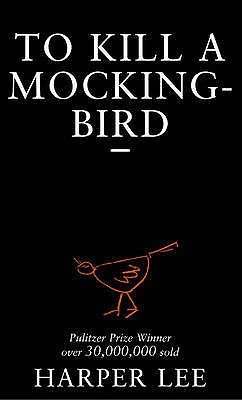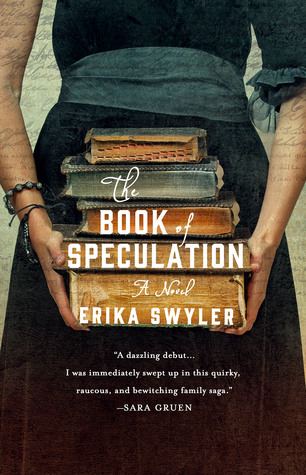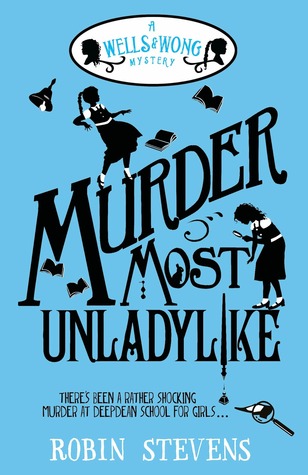 Unless you've been living down a well for the last few months, you should be aware that Harper Lee's second novel, 'Go Set at Watchman' was published last week. I'm aware that this post will be a mere drop in the ocean of words written about Lee's latest but, as an avid reader who has just re-read 'To Kill a Mockingbird' and has eagerly anticipated 'Go Set A Watchman' since it's announcement, I wanted to share some thoughts on both books with other book-lovers and get your thoughts in return. I shall, as always, try to avoid spoiling any major plot points within the novels but, due to the nature of the discussion, there may be some minor spoilers for overarching themes in both books.
Unless you've been living down a well for the last few months, you should be aware that Harper Lee's second novel, 'Go Set at Watchman' was published last week. I'm aware that this post will be a mere drop in the ocean of words written about Lee's latest but, as an avid reader who has just re-read 'To Kill a Mockingbird' and has eagerly anticipated 'Go Set A Watchman' since it's announcement, I wanted to share some thoughts on both books with other book-lovers and get your thoughts in return. I shall, as always, try to avoid spoiling any major plot points within the novels but, due to the nature of the discussion, there may be some minor spoilers for overarching themes in both books.
I didn't read 'To Kill A Mockingbird' until I was in my late teens so, for me at least, it's never been the life-defining novel that it is for a lot of readers who encounter it at school. I remember thinking that the book was very good and I enjoyed reading it but, as an examination of race relations I think I got more from Andrea Levy's 'Small Island' and Maya Angelou's 'I Know Why the Caged Bird Sings'. In 'Mockingbird', the trail of Tom Robinson is almost incidental to start with - background scenery to the life of the young Scout Finch and to the everyday battles of school and home life that she has to contend with - and I remember being somewhat bemused as to why I was reading about a young girl's summertime adventures in a book so well-known for it's powerful anti-segregation message.
 Re-reading 'Mockingbird' a few weeks ago, I realised that my teenage self had missed many of the subtleties within the book - the small asides and gently taught life-lessons that build up to give the novel it's powerful message. By narrowing the field of vision to that of a young girl, Lee is able to portray the complex undercurrents and unspoken truths of small town Southern life in a seemingly simple and innocent way. In 'Mockingbird', Lee shows the reader her message rather than telling it - it's not a matter of the reader being told 'racism is bad' but instead one of readers being invited to compare the actions of Atticus, Scout and Jem against those of Bob Ewell and to make their own decisions about the merits of each viewpoint.
Re-reading 'Mockingbird' a few weeks ago, I realised that my teenage self had missed many of the subtleties within the book - the small asides and gently taught life-lessons that build up to give the novel it's powerful message. By narrowing the field of vision to that of a young girl, Lee is able to portray the complex undercurrents and unspoken truths of small town Southern life in a seemingly simple and innocent way. In 'Mockingbird', Lee shows the reader her message rather than telling it - it's not a matter of the reader being told 'racism is bad' but instead one of readers being invited to compare the actions of Atticus, Scout and Jem against those of Bob Ewell and to make their own decisions about the merits of each viewpoint.
Having finally come to appreciate the full power of 'To Kill A Mockingbird', I was somewhat apprehensive about 'Go Set A Watchman'. Whilst it's publication wasn't about to destroy my childhood, I'd hate to see a novel so powerfully respected as 'Mockingbird' be diminished in any way by its association to a new work. I need not have worried however - I read 'Watchman' in four days flat and enjoyed it thoroughly. That said, whilst it may be set in the same town, with some of the same characters and is told by the adult Scout (now 'Jean Louise') Finch, I do not personally consider 'Watchman' to be a sequel to 'Mockingbird', despite a number of reviews calling it such. Instead, I prefer to think of it as a companion novel - 'Mockingbird' as it might have been if things had turned out a little different.
The themes of 'Watchman' are less subtle and refined - certainly the issue of race and identity is much more prominent from the off, with Jean Louise returning home to Maycomb in the mid-1950s to find that the town and it's citizens are being torn apart by the undercurrents of racial tension that have bubbled to the surface following recent race riots in other parts of the state. The sense of dislocation that Jean Louise feels upon discovering that her family, friends and neighbours are apparently so changed is key part of the novel and her coming to terms with the banishment of childhood ideals is a major part of her development as a character throughout. I really identified with this aspect of 'Watchman' and I think Lee does an excellent job of capturing the conflict that young people undergo when they return to an idealised home only to find it not as perfect as they remembered.
To me, 'Go Set A Watchman' is a novel more obviously concerned with race but less sure how to settle the issues it raises. The ending, which I will not spoil, feels somewhat unsatisfactory as Jean Louise is encouraged to settle for a compromise which ignores many of the issues at hand. 'To Kill A Mockingbird' leaves readers with a sense of satisfaction - Tom Robinson may not get justice but Scout and Jem - and, by proxy, the reader - have been left with a powerful sense of it, whereas 'Go Set A Watchman' leaves as many questions as it answers and with no real sense of conclusion. I'm not saying that this makes it a bad novel but it does make it a more difficult one - some of the questions that Lee raises are deeply unsettling and her ending doesn't give readers an easy way to answer them.
Personally, I think that both novels have their merits. There is no doubt that 'To Kill A Mockingbird' is the better novel - it is better written, more lyrical and has more of a sense of purpose in its aims and plotting and, as such, it rightly deserves to be a classic of literature - but that doesn't mean that 'Go Set A Watchman' isn't worth reading. To me 'Go Set A Watchman' is the more complicated book - the one that raises more questions and refuses to provide neat, satisfying answers. 'Go Set A Watchman' is about the end of childhood and the banishment of nostalgia and it pushes the reader out of their comfort zone and forces them to confront uncomfortable truths. Naming no names, I like that a character who is admirable in so many ways can hold abhorrent political views - it makes them infinitely more tricky to deal with than someone who is a shining beacon of goodness and encourages the reader to examine themselves in a new light. 'Go Set A Watchman' is a very timely book - in a world where racial tensions are again becoming an increasingly relevant topic, it asks questions that still don't have satisfactory answers and encourages us to become unsettled in order to be pushed into action.
As always, I'd love to know your thoughts on 'To Kill A Mockingbird' and 'Go Set A Watchman' so leave me a comment below or tweet me @amyinstaffs. And, until next time, Happy Reading!
x



